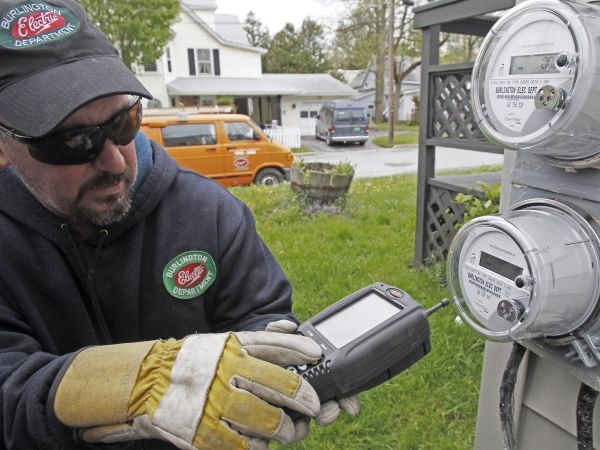
Vermont utilities are encountering some resistance as they roll out new wireless smart meters.
Officials say about 5 percent of consumers have so far chosen not to have the devices installed. But officials expect that "opt out" rate to drop as the technology is deployed around the state.
Both sides in the debate over wireless smart meters are counting on more education to persuade consumers to either accept or reject the digital devices.
"We know people have concerns. We think there are very good answers to those concerns," says Dorothy Schnure, spokeswoman for Green Mountain Power. The utility merged this month with Central Vermont Public Service and now covers about 70 percent of the state.
Schnure says she expects the opt out rate to settle between 2 and 5 percent.
"The question that we hear most often is that people are concerned about privacy. In fact we will protect that information to the same degree we have always protected it," she says. "We do not give out customer information."
Green Mountain Power has installed about 71,000 smart meters, and so far about 4,000 customers have chosen not to use the technology.
While GMP expects the opt-out rate to decline, Martine Victor of Manchester is doing all she can to get more people to reject the service.
Wireless smart meters communicate using radio waves that transmit real-time data on how much electricity is being used. And opponents like Victor are worried not only about breaches of privacy but also about possible health effects from the wireless signals.
"And I think once people hear what’s at stake as far as health impacts and privacy it’s kind of a non-brainer to me that you would want to opt out," Victor says.
The state says both issues should not concern consumers. James Porter is telecommunications director at the Department of Public Service, the agency that represents consumers. He says the department has proposed stringent privacy rules that he expects to be adopted soon by the Public Service Board. He says the wireless signal emitted by smart meters is equivalent to a baby monitor or cordless phone.
Porter says the message from the smart-meter roll out so far is that most consumers are embracing the technology.
"Largely what the department is seeing at this point is a population that generally is very excited about the prospect of having these smart meters," he says. "We think there are enormous benefits both to the electric system, to the utilities, and most importantly to the customers themselves."
Porter says customers can use smart meters to run their energy-demanding appliances less when the price of power is high.